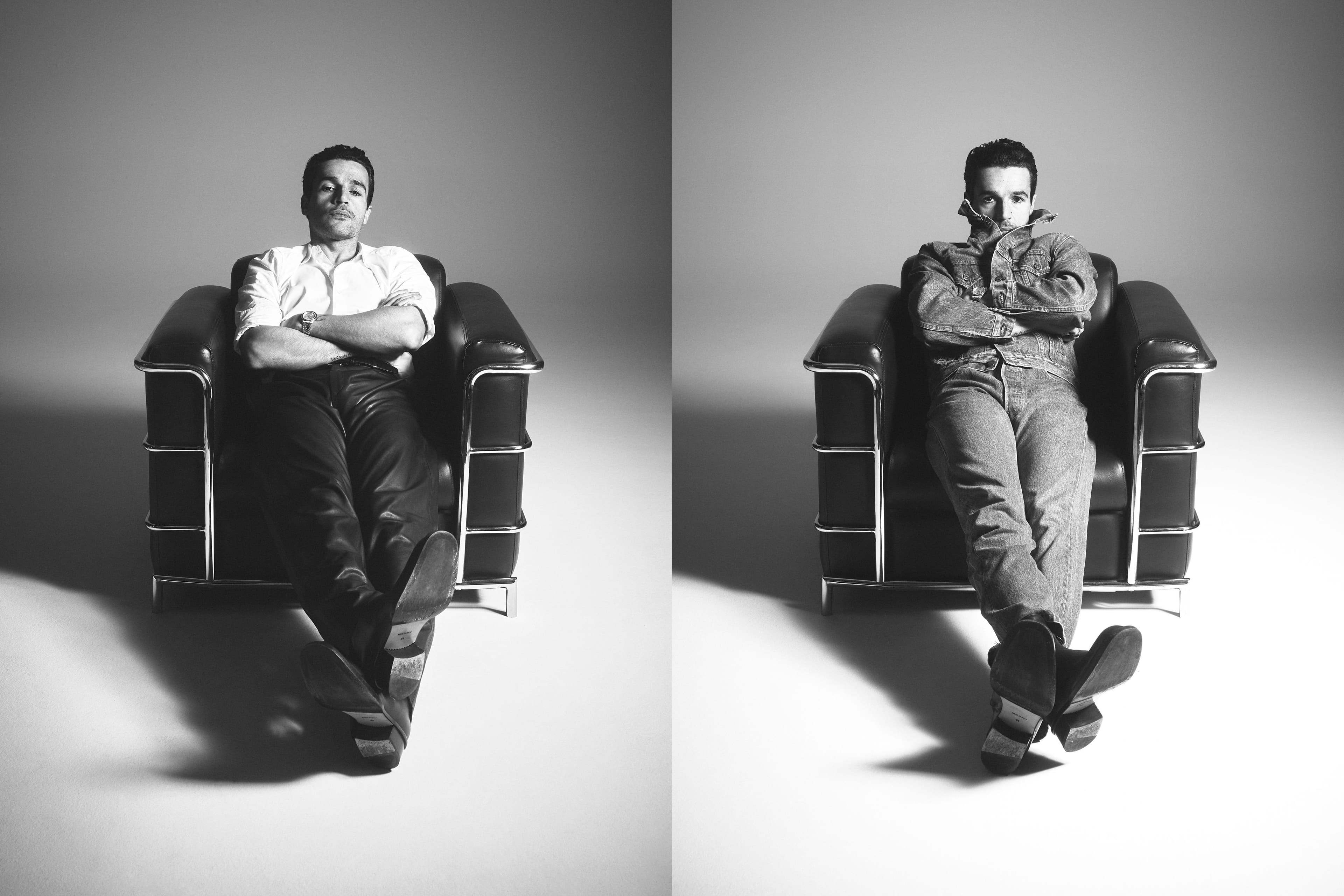
Left: Shirt and pants by Hermès. Belt by Comme des Garçons. Shoes by Alexander McQueen. Watch, worn throughout, by Lorca Watches. Right: Jacket and pants by Levi’s. Shoes by Alexander McQueen.
Finishing the Work With Christopher Abbott
For Christopher Abbott, sometimes the work is never done. Even this week, as he brings his lauded Off Broadway run as the title character in John Patrick Shanley’s Danny and the Deep Blue Sea opposite Aubrey Plaza to an end, he refuses to get too comfortable. “When you have a good play like this, it can grow until the very last show and often you have ideas for things well after you finish the play entirely. We’re still growing with it, we’re still finding things, we’re still trying some new things,“ he says. “It keeps it exhilarating, it keeps it exciting, it keeps it alive.“
Danny, which has been enjoying a sold-out run at the cozy Lucille Lortel Theatre in the West Village thanks to the drawing power of its two lead—and only—actors, finds Abbott back onstage in an intense pas de deux with Plaza’s Roberta, tracing the course of one evening as two embittered and battered strangers find solace in each other. Shanley’s play, which originally premiered in 1983, is a mainstay of drama classes and monologue collections thanks to its bracing and confrontational tone: Both Danny and Roberta are attempting to reconcile themselves to the guilt they carry from past actions that have had powerful aftershocks on their lives. Abbott spent years along with the play’s director Jeff Ward, a longtime friend and former roommate, to bring this production together, displaying a passion that is obvious both in his performance and when he speaks about the play itself. “The writing is extremely real but poetic at the same time,“ he says. “I think for theater there needs to be a hint of poeticism, but there’s a very naturalistic back-and-forth sometimes. It’s such a sweet mix of that. With any play, but with this play specifically, you can really pour your guts out and it’s a release and it feels good.“
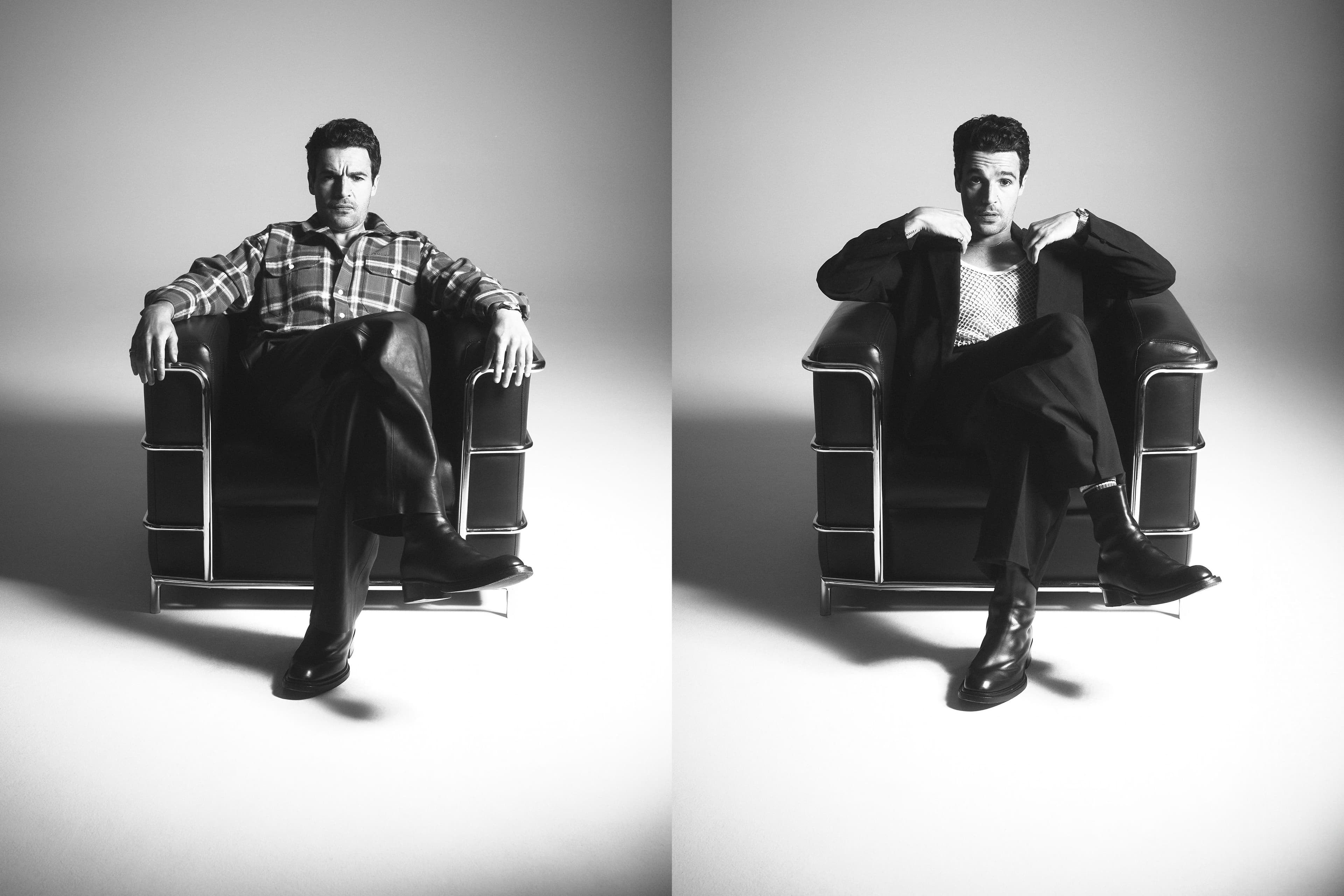
Left: Shirt by Givenchy. Pants by Hermès. Belt by Comme des Garçons. Shoes by Alexander McQueen. Right: Jacket and pants by Zegna. Vintage top, stylist’s own. Shoes by Alexander McQueen.
Abbott is best known to many for his screen roles (including in Girls, Martha Marcy May Marlene, James White, A Most Violent Year, and Catch-22), but he is no stranger to the New York stage, with John Guare’s The House of Blue Leaves and Annie Baker’s John on his lengthy list of credits. Plaza, on the other hand, is performing live theater in New York for the first time in nearly two decades, having been brought onto the project by Abbott after the two worked together on the 2020 Sundance hit Black Bear. “I always felt like she has this Gena Rowlands-type quality to her,“ says Abbott. “Her instincts are insane.“
On stage, the pair have a fiery chemistry, from their first meeting in a Bronx dive bar until they part ways in Roberta’s bedroom the next morning. Their performances are at once visceral and deeply emotional, burdened by their brutal backstories. There are moments of levity as well, and Abbott says the team has been conscious of finding the right balance to “just do the real.“ “The audience is always the other character,“ he adds. “Sometimes you can’t control how they react. Some audiences laugh a lot and then other nights it’s dead quiet, and I don’t judge them for that. Sometimes laughing comes out of discomfort and that’s OK. We’re not trying to manipulate the story or the audience. Our goal is to just do it truthfully and sometimes people laugh and sometimes people don’t.“
One of the most striking aspects of Ward’s production takes its inspiration from the play’s original subtitle, ’An Apache Dance,’ a reference to a popular dance from fin de siècle Paris that is sometimes interpreted as depicting a violent struggle between a man and a woman. Choreographers Bobbi Jene Smith and Or Schraiber, a romantic couple whose previous work has often explored complicated relationship dynamics, have contributed an entr’acte of pure dance bridging bar and bedroom in which Danny and Roberta grapple with each other and their inner selves. The interlude offers a vivid departure from the stark naturalism of the rest of the play, revealing additional layers of both roles. “The dance lives in an alternate reality, so there’s freedom to be both in and out of character at the same time,“ says Abbott. “It’s almost what Danny imagines himself, what he dreams himself to be, and that’s beautiful to me. The character lives in the execution of the dance—as do I. In that moment, Chris is trying to execute this choreography and that can still be through the character of Danny, but whatever plight that is is still the same, which I love.“
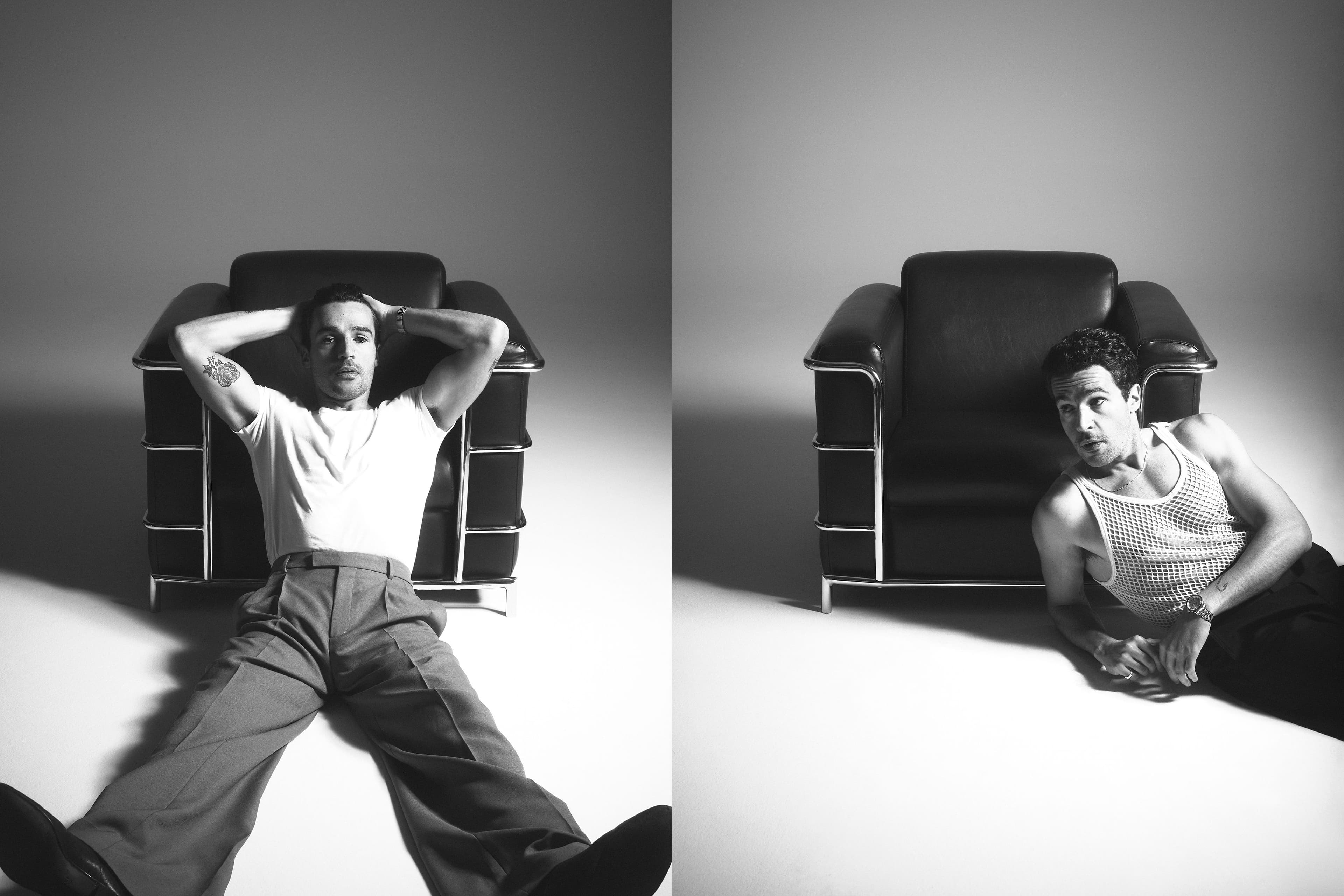
Left: All clothing and shoes by Gucci. Right: Vintage top, stylist’s own. Pants by Zegna. Shoes by Alexander McQueen.
For those who haven’t been able to catch Abbott onstage with Plaza, there are opportunities to watch him embody a multi-layered relationship onscreen as well. In last year’s under-appreciated two-hander Sanctuary, now streaming on Hulu, he portrays Hal, the heir to a hotel fortune who attempts to negotiate a new understanding with his longtime dominatrix Rebecca, played by Margaret Qualley. In theaters, Abbott can currently be seen in the awards season favorite and new Golden Globe winner Poor Things, directed by Yorgos Lanthimos and starring Emma Stone, who also won Best Actress this weekend, as Bella Baxter, a woman who has been brought back to life in Victorian England and sets out to discover the world anew in the company of a cad played by Mark Ruffalo. Abbott enters late in the film as Bella’s former husband who attempts to return her to her former life of cruelty and captivity. Poor Things won the top prize at last year’s Venice Film Festival thanks to its performances and its uncompromising creative vision, a hallmark of Lanthimos’s. “It’s a gorgeous, gorgeous movie. I’m very proud to be in it,“ says Abbott. “I don’t know if I’ve quite seen anything like it.“
As the domineering Captain Alfie Blessington, Abbott embodies a particularly vile form of chauvinism, a departure from the sensitive roles he is best known for. Alongside Stone, Ruffalo, Willem Dafoe, and Ramy Youssef, Abbott inhabits a vibrantly imagined proto-futuristic world of science fiction, where technology can not only bring the dead back to life but create impossible animal hybrids, but fails in solving the human needs for connection or fulfillment. Like many of Lanthimos’s previous films, including The Favourite, The Killing of a Sacred Deer, and The Lobster, Poor Things is the product of a singular artistic point of view. “It’s such a bold swing,“ says Abbott, “and I love that he took it.“ Still, the actor insists that rather than try to mold himself to an external interpretation, he focused closely on the character himself. “It’s just about going back to truth and doing it sincerely,“ he says, which could apply equally to any of his incisive performances. “If you do it sincerely, one can edit it in such a way for it to be either funny or dramatic or scary or whatever. I relieve myself from trying to play a tone because it’s almost impossible.“
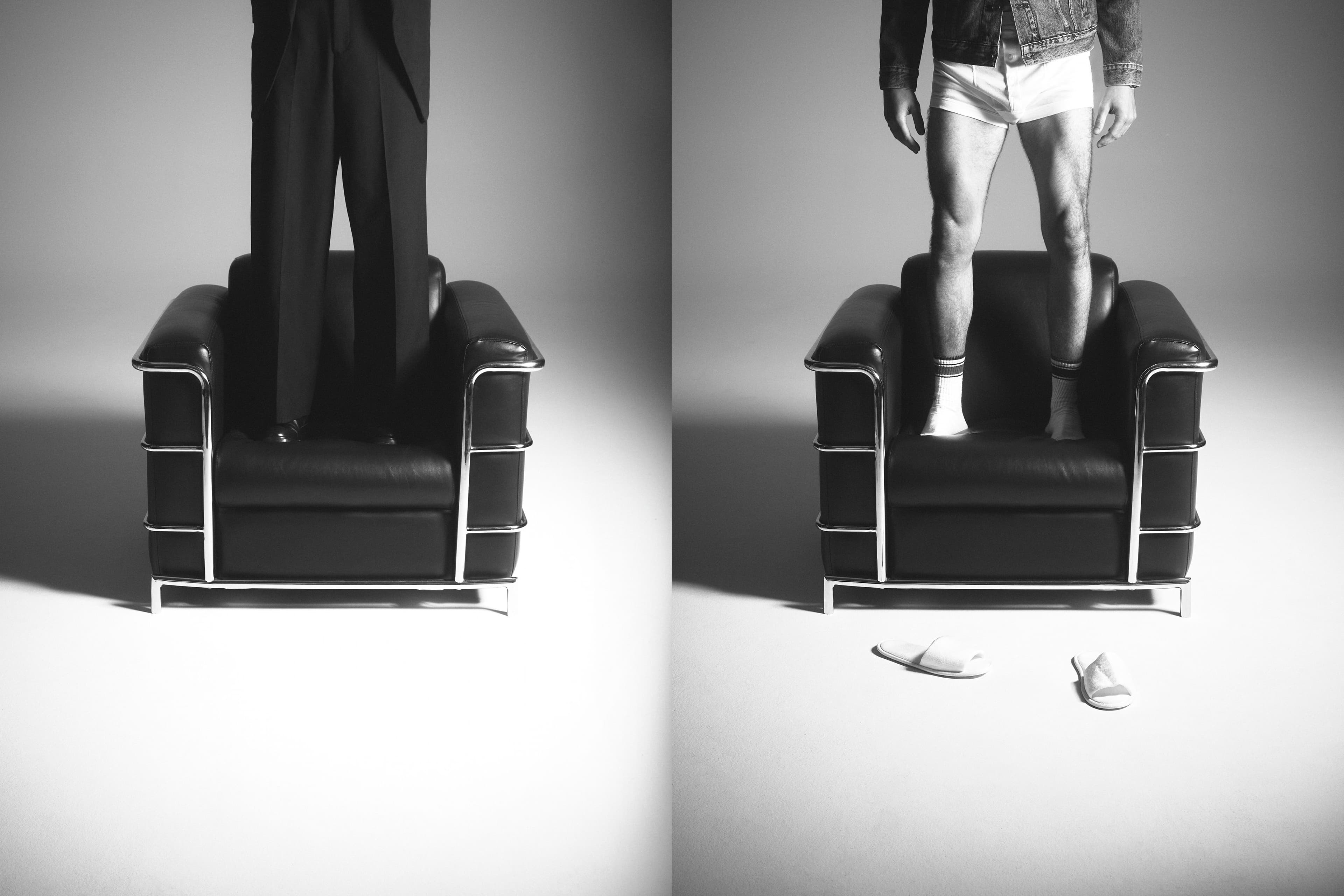
Left: Jacket and pants by Zegna. Shoes by Alexander McQueen. Right: Jacket by Levi’s. Underwear by Calvin Klein. Socks, talent’s own.
At this point in his career, Abbott approaches all of his projects with that same emphasis on close reading but says he recognizes the futility of trying to look too far ahead and prefers to face each challenge as it comes. “It’s sort of whatever speaks to me in the moment,“ he says about his process for selecting his roles. “There’s some things that really feel right. Yorgos was a no-brainer, doing this play felt like a no-brainer. Some other jobs I’ve done maybe aren’t no-brainers, but they feel like, ’Oh, I want to take a shot. I want to try.’ Sometimes you’re disappointed, sometimes you’re happily surprised.“
Never content to take it easy, Abbott’s method of continuing to hone and sharpen his performance as Danny up until the very last performance could describe his approach to his work as an actor as a whole: always changing, always learning, and always reaching further. “There’s still work to do in little ways, but I feel confident and comfortable in—I would say, more than just the bones of it,“ he elaborates. “We have the roots and the trunk and maybe some of the branches, but there’s still the leaves. There’s all these little things you can do.“
Danny and the Deep Blue Sea continues through Saturday at the Lucille Lortel Theatre, New York. Poor Things is now playing in theaters.
Be one of the first to see this story and many more in print by preordering our seventh issue here.
As a nonprofit arts and culture publication dedicated to educating, inspiring, and uplifting creatives, Cero Magazine depends on your donations to create stories like these. Please support our work here.
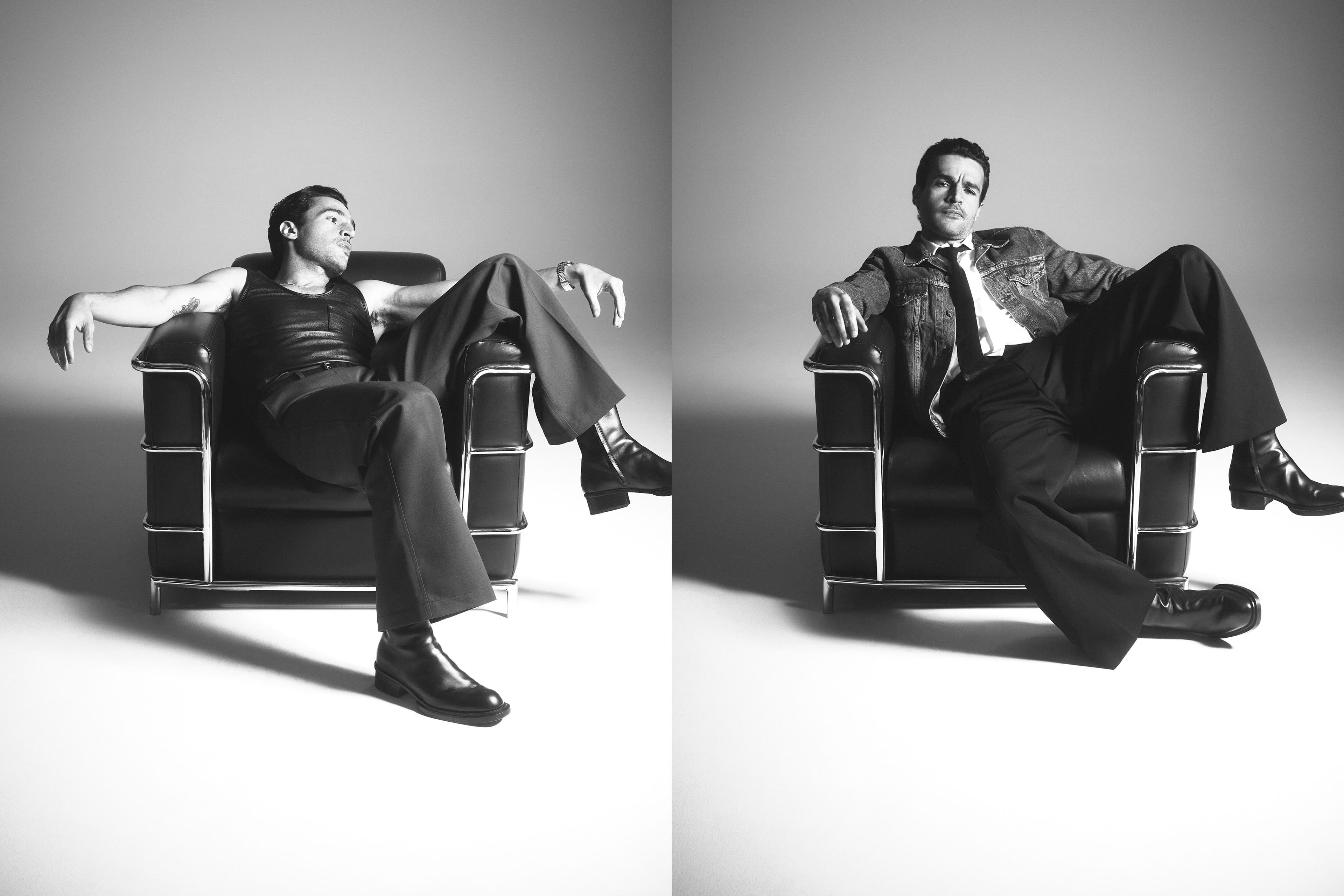
Left: Top by Leatherman. Pants by Lemaire. Belt by Comme des Garçons. Shoes by Alexander McQueen. Right: Jacket by Levi’s. Shirt, pants, tie, and shoes by Alexander McQueen.
As a nonprofit arts and culture publication dedicated to educating, inspiring, and uplifting creatives, Cero Magazine depends on your donations to create stories like these. Please support our work here.






